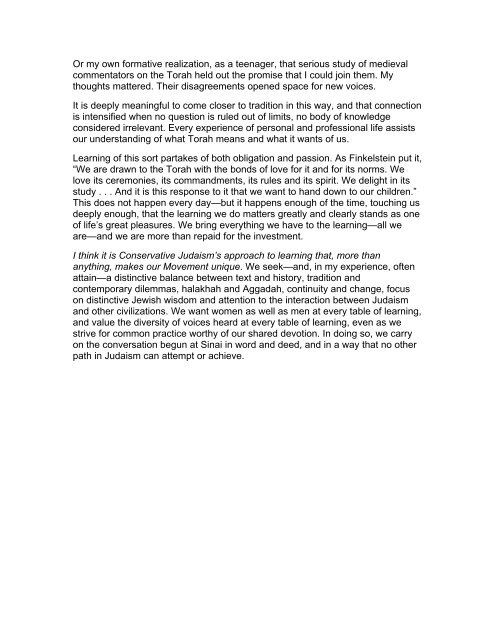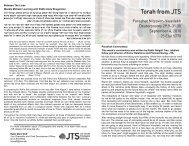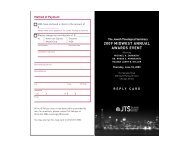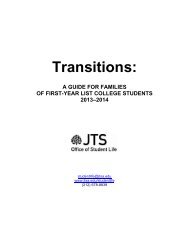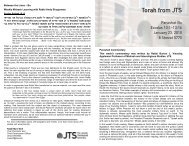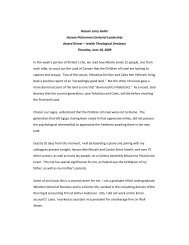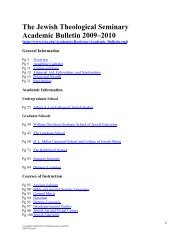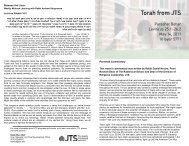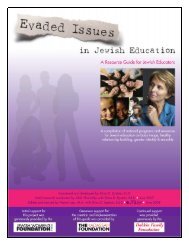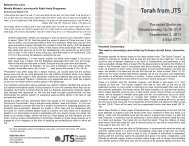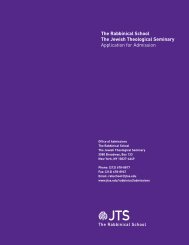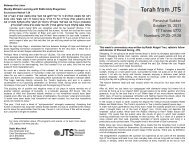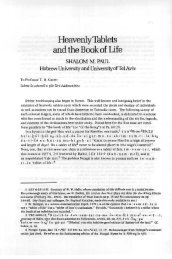Print This Essay - The Jewish Theological Seminary
Print This Essay - The Jewish Theological Seminary
Print This Essay - The Jewish Theological Seminary
Create successful ePaper yourself
Turn your PDF publications into a flip-book with our unique Google optimized e-Paper software.
Or my own formative realization, as a teenager, that serious study of medieval<br />
commentators on the Torah held out the promise that I could join them. My<br />
thoughts mattered. <strong>The</strong>ir disagreements opened space for new voices.<br />
It is deeply meaningful to come closer to tradition in this way, and that connection<br />
is intensified when no question is ruled out of limits, no body of knowledge<br />
considered irrelevant. Every experience of personal and professional life assists<br />
our understanding of what Torah means and what it wants of us.<br />
Learning of this sort partakes of both obligation and passion. As Finkelstein put it,<br />
“We are drawn to the Torah with the bonds of love for it and for its norms. We<br />
love its ceremonies, its commandments, its rules and its spirit. We delight in its<br />
study . . . And it is this response to it that we want to hand down to our children.”<br />
<strong>This</strong> does not happen every day—but it happens enough of the time, touching us<br />
deeply enough, that the learning we do matters greatly and clearly stands as one<br />
of life’s great pleasures. We bring everything we have to the learning—all we<br />
are—and we are more than repaid for the investment.<br />
I think it is Conservative Judaism’s approach to learning that, more than<br />
anything, makes our Movement unique. We seek—and, in my experience, often<br />
attain—a distinctive balance between text and history, tradition and<br />
contemporary dilemmas, halakhah and Aggadah, continuity and change, focus<br />
on distinctive <strong>Jewish</strong> wisdom and attention to the interaction between Judaism<br />
and other civilizations. We want women as well as men at every table of learning,<br />
and value the diversity of voices heard at every table of learning, even as we<br />
strive for common practice worthy of our shared devotion. In doing so, we carry<br />
on the conversation begun at Sinai in word and deed, and in a way that no other<br />
path in Judaism can attempt or achieve.


